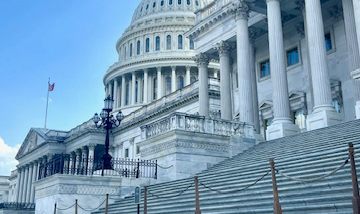Disclaimer: The following is for informational purposes only. It is not intended to constitute legal advice, or to recommend a course of action, and does not create an attorney-client relationship between the reader and Renuka Somers, or Somers Tax Law, PLLC.
The U.S. Treasury announced this week that:
- it will not enforce penalties and fines relating to the beneficial ownership information reporting (BOIR) rules under existing deadlines in the Corporate Transparency Act (CTA), and
- it will not enforce penalties and fines against U.S. citizens and domestic reporting companies, and their beneficial owners.
Treasury has also proposed narrowing the scope of the CTA reporting rules for foreign companies. No guidance has been issued as yet as to whether penalties and fines may be imposed with respect to existing deadlines for foreign citizens and foreign companies.
This week’s announcement by Treasury comes after FinCen (the Financial Crimes Enforcement Network) announced on February 19, 2025, that the BOIR requirements were back in effect, with a deadline of March 21, 2025. FinCen’s announcement came after several court appeals and stays relating to the constitutionality of the CTA and its enforcement, most notably the December 3, 2024, preliminary injunction granted by a Federal District Court in Texas in Texas Top Cop Shop, Inc., et al. v. Garland, et al., No. 4:24-cv-00478 (E.D. Tex.).
By way of background, the CTA came into effect in the United States on January 1, 2024, requiring certain companies to report BOI to FinCEN, including:
- U.S. domestic corporations, limited liability companies (LLCs), and other entities created within the U.S., and
- Foreign entities registered to do business in the U.S.
Companies already required to report to governing bodies (banks, insurance companies, accounting firms, and tax-exempt entities) and large operating companies were exempted from the rules.
The reporting requirements included information at the entity level (such as business name, principal place of business address, jurisdiction of formation, taxpayer identification number) and information relating to the beneficial owners (being the individuals who, directly or indirectly, exercise substantial control over the entity, or own or control at least 25% of the ownership interests in the entity).
Renuka Somers





